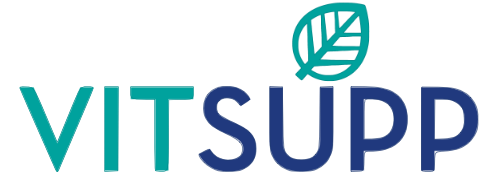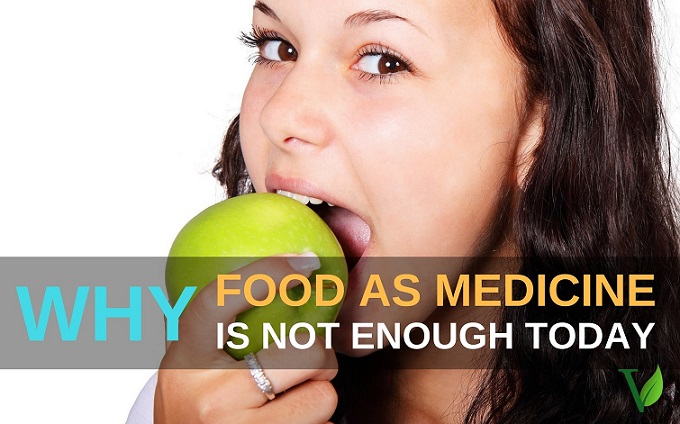Hippocrates following statement explains the importance of the role of food as medicine.
Let food be thy medicine and medicine be thy food.
One of Hippocrates forgotten (and skeptical) students also said that
Who said anything about medicine? Let’s eat!

I am sure you must have heard Hippocrates’ famous quote, where he asks us to make food our medicine and to consider medicine as our food.
Hippocrates is known as the father of modern medicine. This statement “Let food be thy medicine and medicine be thy food” is an account which means a lot in the contemporary world.
Contrary to what Hippocrates recommended there is an overemphasis on medicine to cure almost every disease. Whatever may be the illness, we run to the medical practitioner. Popping a pill is the easiest way to get healthy, and that is the reason allopathic medicines are in-vogue.
Healing power of Natural Ingredients
If you have a friend who cares about natural living, you must have heard him or her talking about the curing power of natural ingredients. Forgotten Naturopaths, Ayurvedic Doctors, including our famous Baba Ramdev have been promoting the use of natural food products as a cure for several diseases.
If you are skeptical on what Hippocrates and advocates of natural living believe, just for a moment think if you eat food for your body to survive, why do you say it will also not take care of it. Human species has survived over a million years and has evolved in the interim not on medicine but food. Modern drugs were not in existence barely two centuries ago.
If humans could survive then, why not now. What we need to do is to unlock the mystery behind it and see beyond, what the powerful pharma companies are advocating.
Contents
Why Food as Medicine
The food we eat gives our bodies the fuel which makes it run efficiently.
However, our body needs much more than only energy to run efficiently. The human body is a complex machine, and all its parts are unique concerning their performance.
Therefore our food which is the only source of fuel, need to supply the necessary materials (also known as nutrients) for it to function properly. If we don’t get the right materials, its processes will suffer, and our health will decline.
In short, what we eat is central to our health.
Your body needs these nutrients for a normal functioning. These nutrients are classified as micro and macro nutrients.
Why Food as Medicine may not be enough today
If you are reading this article, you must be thinking that we must be talking about people who do not get enough to eat. Such people do not get enough macro nutrients (fat, carbohydrate, and proteins), which supplies energy to our body.
However, people who get enough energy from food could be malnourished or devoid of micronutrients (vitamins, minerals, etc.).
These micronutrients in our food enable the cells in our bodies to perform their necessary functions. The below statement describes the importance of nutrients:
“Nutrients are the nourishing substances in food that are essential for the growth, development and maintenance of body functions.
Essential meaning that if a nutrient is not present, aspects of function and therefore human health decline.
When nutrient intake does not regularly meet the nutrient needs dictated by the cell activity, the metabolic processes slow down or even stop.”
Now consider how Websters define medicine as:
“The science and art dealing with the maintenance of health and the prevention, alleviation, or cure of disease.“
From the above it is quite clear that Food acts like the drug, to maintain, prevent, and treat disease. Therefore for you (as you get enough food supply every day), excellent food for your body to perform its function correctly will be a diet which is micronutrient rich.
A Nutrient rich diet keeps you healthy and live longer.
Why our food is not providing enough nutrients today
However, even if you want optimal amounts of vitamins and minerals every day from your diet, you might not get it.
Your gut may not be absorbing them efficiently (as happens in cases of IBS), or your body may need much more nutrients than an average human.
Maintaining adequate levels of essential vitamins and minerals is crucial for good health.
Suboptimal intake of some vitamins is a risk factor for chronic diseases and common in the general population, especially the elderly.
In contrast, micronutrient adequacy has the potential to extend lifespan.
Recent research has found that multivitamin use leads to longer telomere length, which is an indicator of a slower rate of ageing.
Telomeres are an essential part of human cells that affect how our cells age.
However, even an ideal diet could be devoid of critical nutrients. Deficiencies of such nutrients can undermine your health. Proper supplementation can help fill these gaps, ensuring that we get the perfect amount of every essential micronutrient. Certain vitamins and minerals that are deficient in a healthy diet are:
- Vitamin B12
- Iodine
- Vitamin D
- Vitamin K2
- Iron
- Zinc
Vitamin B12:
One of the most important B Vitamin is Vitamin B12 or Vitamin B12 or Vitamin B-12. Vitamin B12 is also known as cobalamin. It is a water-soluble vitamin with a key role in the normal functioning of the brain & nervous system and the formation of blood.
It is one of the eight B vitamins. Vitamin B12 is involved in the metabolism within every cell of the human body, especially affecting DNA synthesis and regulation, but also fatty acid metabolism and amino acid metabolism.
Vitamin B12 is a very complex Vitamin and plays a significant role in methyl group transfer and influences the normal functioning of the brain & nervous system and in the formation of blood. Deficiency of Vitamin B12 occur due to
- Inadequate dietary intake
- An impaired absorption from lack of intrinsic factor or insufficient gastric secretions.
- Among elderly adults due to decreased absorption of protein bound cobalamin.
Vitamin B12 is an essential micronutrient as it can not be produced in our body and is made only by microorganisms.
As our food is cleaned and transported for a long distance before we eat it. When this food reaches us Vitamin B12 producing organisms are no more there. Therefore most of us are deficient in Vitamin B12. Vegetarians and elderly are much more susceptible to Vitamin B12 deficiency.
Supplementation with vitamin B12 helps a lot. The best form of bioavailable or absorbable form of Vitamin B12 is Methylcobalamin or MB12; 5-Deoxyadenosylcobalamin (Coenzyme B12).
Vitamin D:
Vitamin D refers to a group of fat-soluble secosteroids responsible for enhancing intestinal absorption of calcium, iron, magnesium, phosphate, and zinc.
The most important compounds in Vitamin D group are vitamin D3 (popularly known as cholecalciferol) and vitamin D2 (ergocalciferol). There is growing concern over the occurrence of poor vitamin D status. Some prominent vitamin D researchers have identified vitamin D deficiencies as a pandemic.
Vitamin D deficiencies are more common in those with limited sun exposure, a low intake of vitamin D, impaired absorption owing to kidney or digestive diseases, or older adults who have a decreased ability to synthesize this vitamin from the sun) UV exposure is the primary source of vitamin D for most people.
Many populations are showing alarming rates of Vitamin D deficiencies.
Most important Vitamin D forms, Cholecalciferol, and ergocalciferol can be ingested from the diet and supplements. The real challenge is that very few foods contain vitamin D. Therefore the most important form of Vitamin D is through supplementation.
Vitamin K2:
Vitamin K deficiency results in an increase in the time required for blood to clot. The usual clinical manifestation is a tendency to primary.
The measurement of prothrombin Lime in plasma reveals the vitamin K-dependent activation of prothrombin and other clotting factors. Prothrombin times longer than 12 seconds can indicate vitamin K deficiency. Vitamin K status is especially important in the elderly because of inadequate dietary intake and absorptive difficulties, frequently complicated by drug therapies.
Monitoring vitamin K can help reduce osteoporotic bone fractures by identifying individuals whose bone loss is due to vitamin K deficiency. Vitamin K supplementation can reduce Calcium loss in such cases by up to 50%. There are two forms of vitamin K, K1, and K2. Vitamin K2 seems to be more important to supplement as it is produced by microorganisms and is low in plant foods.
Iodine:
Iodine (I) is necessary to make thyroid hormone, a regulator of energy metabolism that is vital for normal growth and development, maintenance of body temperature, and brain development. Thyroxine (T4) contains four iodine atoms, and triiodothyronine (T3) contains three iodine atoms, so iodine constitutes 65% and 59% of T4 and T3, respectively.
Your Gut converts dietary iodine to iodide and gastrointestinal tract absorbs it into your body. Iodide is 100% bioavailable.
Iodine deficiencies are the leading cause of preventable mental retardation worldwide. Iodine deficiency is known to affect all stages of life. For the fetus, it can lead to abortions, stillbirth, congenital anomalies, increased perinatal mortality, endemic cretinism and deaf mutism.
In the neonate, it can cause goitre, hypothyroidism, mental retardation and increased susceptibility of the thyroid gland to nuclear radiation. Neonatal screening can prevent neurological consequences of congenital hypothyroidism in infants after birth.
Iodine Deficiency
In children and adolescents, iodine deficiency can lead to goiter, subclinical hypothyroidism, subclinical hyperthyroidism, impaired mental function, retarded physical development and susceptibility of the thyroid gland to nuclear radiation.
Finally, among adults, the consequences of iodine deficiency are hypothyroidism and impaired mental function.
In the elderly, iodine-induced hyperthyroidism and Increased vulnerability of the thyroid gland to nuclear radiation. Iodine deficiency coupled with high goitrogen intake for an extended period can bring about play.’ The combination of goitrogenic thiocyanide with selenium deficiency is a risk factor for endemic myxedematous cretinism.
Iodine content in the body is 20 to 30 mg. Out of this Iodine body content, 8 mg is found in the thyroid gland. Iodine deficiency has become one of the most common problems worldwide.
The major cause of iodine deficiency is inadequate intake due to low soil concentration, with resulting low concentration in crops. The iodine content of plants grown in iodine-deficient soil may be as little as 10 micro-gram/kg, compared with 1,000 micro-gram/kg for plants grown on soils with high iodine content.
Zinc:
Zinc is necessary for growth and development of all living organisms as it is a cofactor for more than 300 enzymes. It plays a vital role in numerous catalytic and regulatory enzymes and protein folding and receptor binding.
Zinc fingers that regulate gene expression represent an essential structural role of zinc in proteins and plays important roles in the functions of DNA. RNA, and transcription of receptor factors. Zinc is a powerful antioxidant and it helps protect cells in the body from damage by removing free radicals.
Zinc can neutralise free radicals and may reduce or even help prevent some of the damage they cause. Free radicals can induce ageing process, heart disease, and cancer. Causes of Zinc Deficiency are:
- Decreased intake of Zinc Rich food
- Mal-absorption in GI
- Diarrhea
- Acrodermatitis entheropathica
- Sickle cell disease
- Pregnancy
- Consumption of Copper rich products or use of copper utensils
Zinc deficiency is common among:
- Elderly
- Alcoholics
- People with anorexia
- People on very restricted diets
- Children with autism/ADHD/PDD-NOS.


